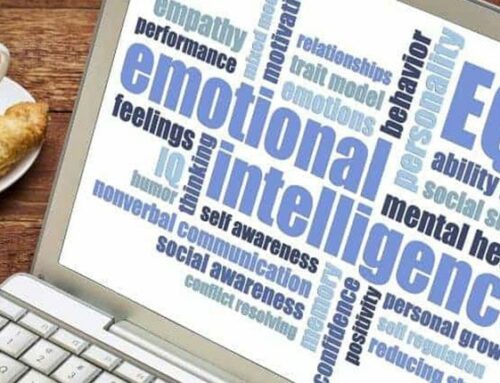Etiquette and emotional intelligence are two pillars that uphold the foundation of successful and harmonious social interactions. While they may seem like distinct concepts, their connection is deeply intertwined, influencing the quality of our relationships and the way we navigate the world.
The Dance of Etiquette
Etiquette refers to a set of social norms, rules, and behaviours that guide our conduct in various situations. It encompasses polite and respectful behavior, often outlined in unwritten codes or formal manners. Etiquette provides a framework for our actions, allowing us to engage with others in a considerate and civil manner.
The Harmony of Emotional Intelligence
Emotional intelligence, on the other hand, is the ability to recognise, understand, manage, and effectively utilise one’s own emotions and those of others. It involves empathy, self-awareness, self-regulation, and social skills. People with high emotional intelligence can navigate social situations with ease, demonstrating empathy, tact, and a genuine understanding of others’ feelings.
In this article, we will explore the relationship between etiquette and emotional intelligence and how they complement one another.
Effective Communication
Etiquette includes the art of effective communication, which involves being a good listener, using appropriate language, and conveying your message clearly. Emotional intelligence enhances communication skills by making you more attuned to non-verbal cues, such as body language and tone of voice. It also helps you express your thoughts and emotions in a way that is sensitive to the feelings of others.
Self-Regulation
Etiquette often requires self-control, especially in challenging or potentially conflict-ridden situations. Emotional intelligence equips individuals with the ability to manage their own emotions and impulses effectively. This self-regulation is a crucial component of displaying good etiquette because it ensures that one can maintain composure and avoid reacting impulsively inappropriately.
Building Strong Relationships
Both etiquette and emotional intelligence contribute to building strong and lasting relationships. Individuals who are skilled in both are more likely to foster trust, respect, and deep connections with others. The combination of understanding social norms and the emotional needs of others can create meaningful, enduring relationships.
Adapting to Diverse Situations
Etiquette isn’t one-size-fits-all; it varies across cultures and situations. Emotional intelligence helps us adapt our etiquette to different social contexts. By understanding the emotions and needs of those around us, we can tailor our behaviour to ensure we are always considerate and appropriate.
Respect and Consideration
Etiquette often emphasises showing respect and consideration for others. Emotional intelligence plays a significant role in this by helping individuals recognise and understand the emotions, needs, and perspectives of others. When you’re emotionally intelligent, you’re more likely to treat others with respect and courtesy because you can empathise with their feelings and experiences.
Empathy
Empathy is a central aspect of emotional intelligence, and it is key to understanding and responding appropriately in social interactions. Etiquette often involves understanding the emotional states and needs of others, which empathy facilitates. People with high emotional intelligence are more likely to be sensitive to the emotions of those around them, leading to more considerate and empathetic behaviour, which aligns with etiquette.
Conflict resolution
Etiquette provides guidelines for resolving conflicts peacefully and constructively. Emotional intelligence is crucial in conflict resolution because it allows individuals to approach disagreements with empathy, active listening, and a focus on finding mutually beneficial solutions. This emotional understanding contributes to more effective conflict resolution, which is an important aspect of etiquette.
Adaptation to Diverse Situations
Etiquette varies across cultures and situations. Emotional intelligence helps individuals adapt their etiquette to different social contexts. Understanding the emotions and cultural nuances of those around you allows for a more flexible and appropriate approach to social interactions, ensuring that etiquette is not a rigid set of rules but a dynamic, considerate behaviour.
In conclusion…
Etiquette and emotional intelligence are intertwined elements of our social fabric. They complement each other, helping us navigate the complexities of human interaction. By combining the principles of etiquette with the empathetic and self-aware qualities of emotional intelligence, we can foster more harmonious relationships, resolve conflicts peacefully, and thrive in diverse social settings. Ultimately, the synthesis of etiquette and emotional intelligence leads to a more respectful, empathetic, and emotionally fulfilling way of engaging with the world.




Leave A Comment